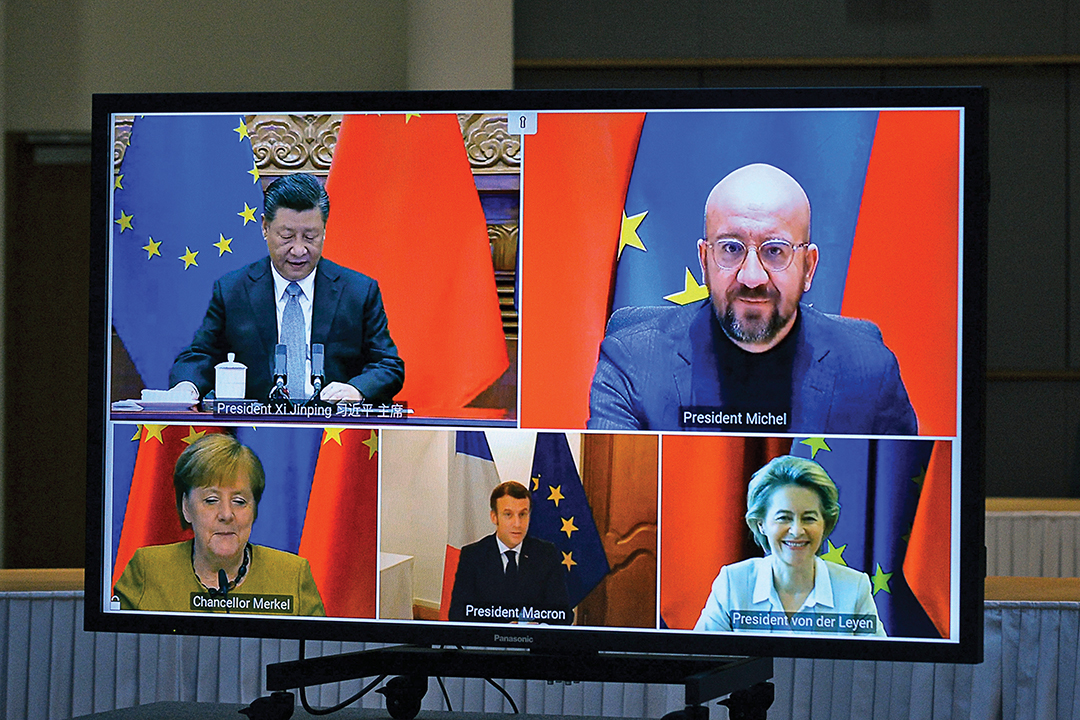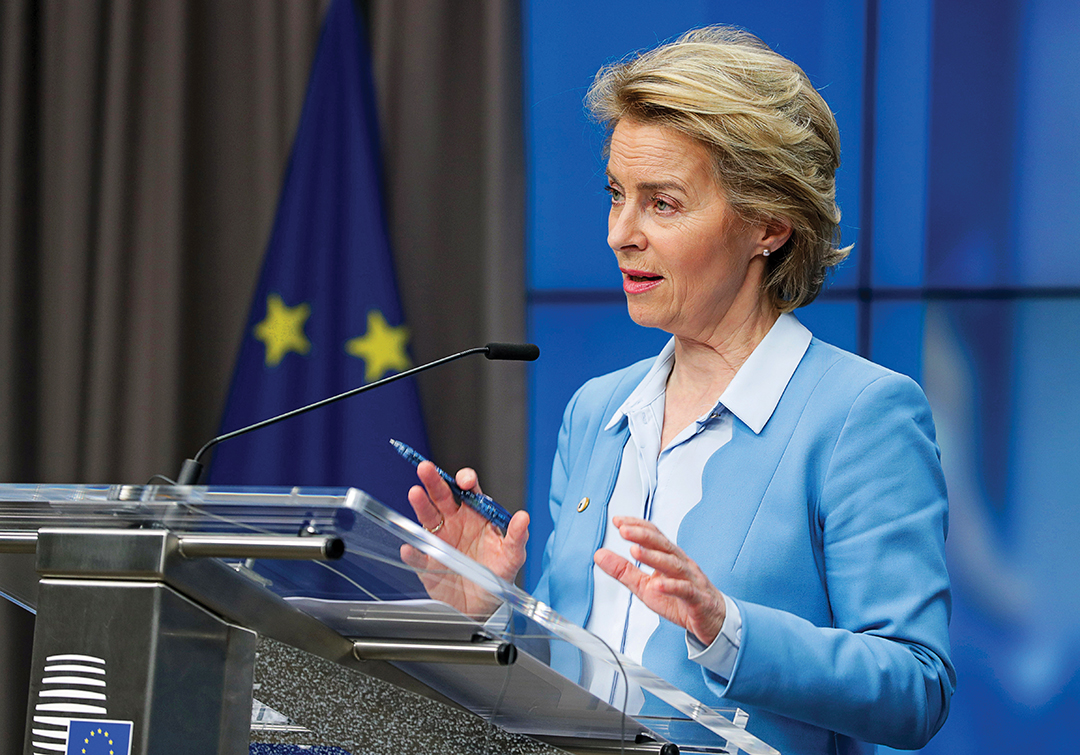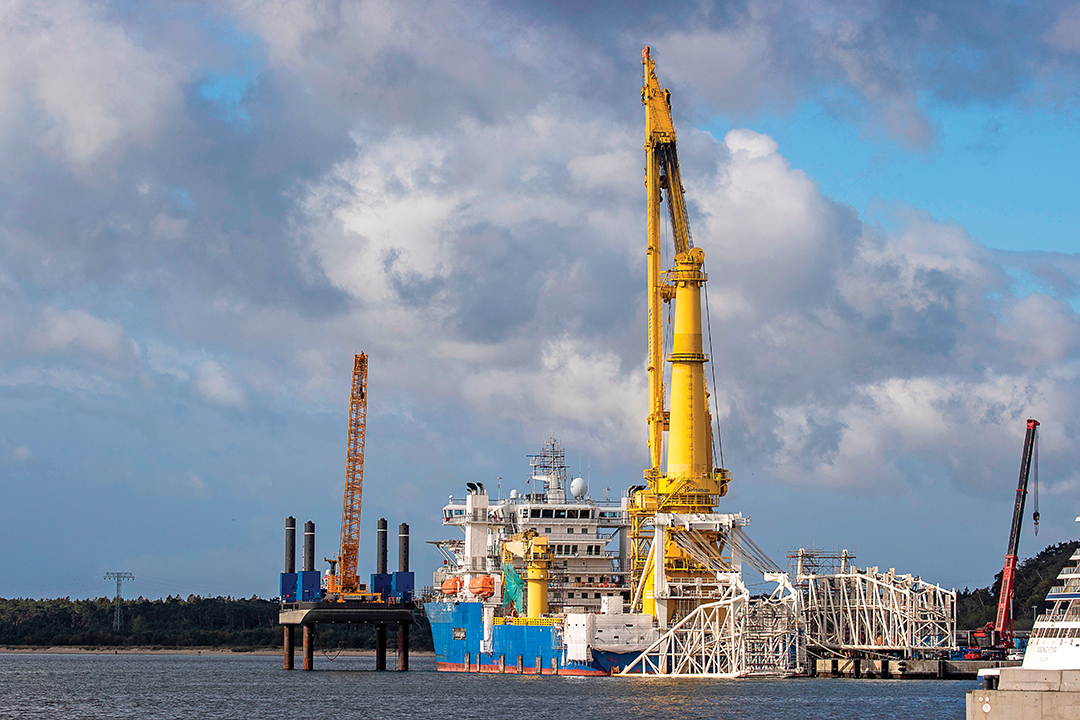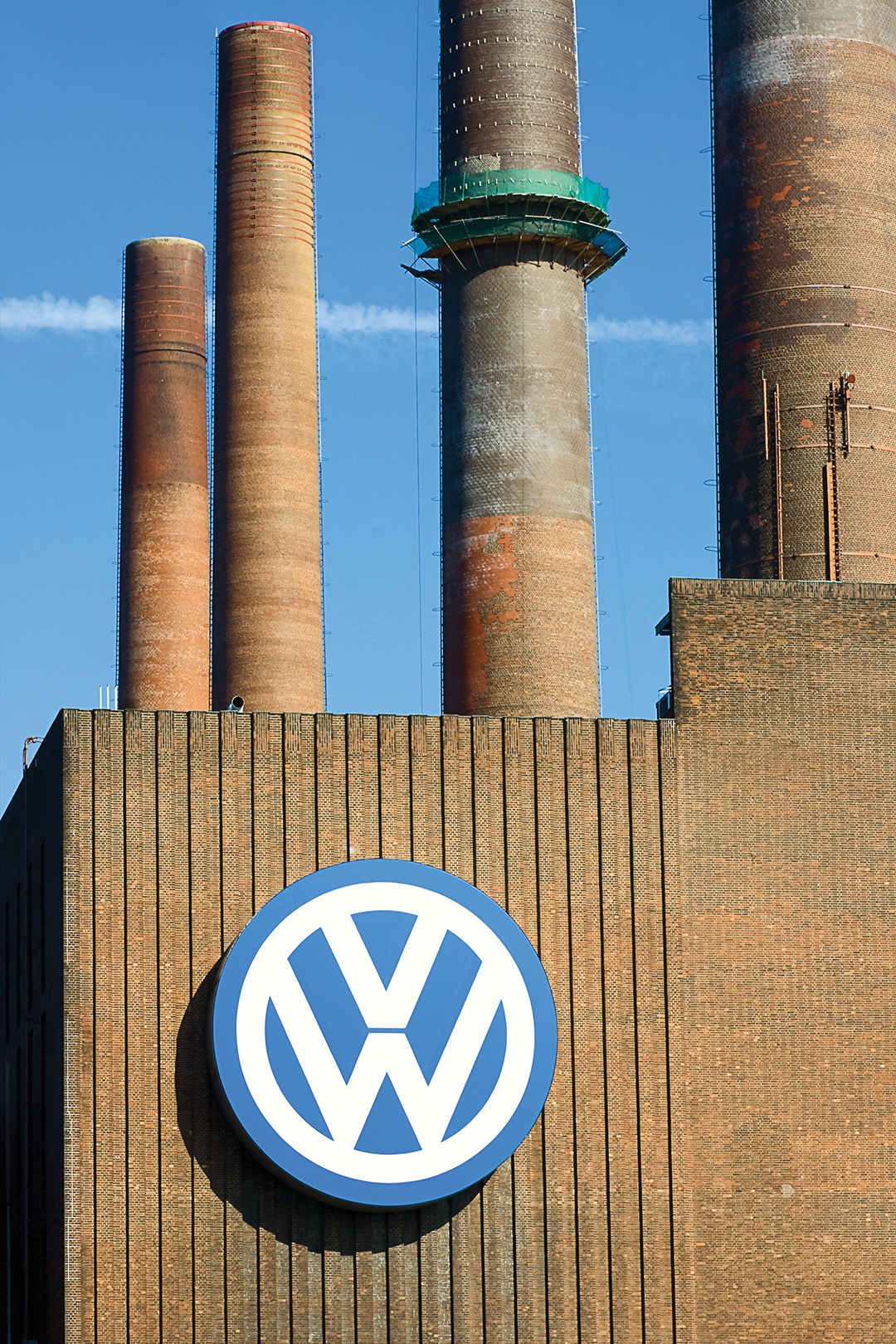The EU, Great Power Competition and COVID-19
By Małgorzata Jankowska, counselor, Ministry of Foreign Affairs, Poland
The turmoil caused by the outbreak of COVID-19 has been perceived by many European Union leaders as an opportune time to reinforce their calls to renew multilateralism. The need to deal in a cooperative way with the economic, social and political consequences of the pandemic proved the validity of multilateralism. At a basic level, multilateralism refers to at least three states working together to achieve shared objectives and refraining from acting in a unilateral or bilateral way. Multilateralism is first and foremost the preferred way of cooperation for states wary of great powers politics. It is no surprise that multilateralism is widely claimed to be a part of the EU’s DNA. However, EU leaders are aware of the structural shifts within the United States-China rivalry revealed by COVID-19. In this new reality, a more effective multilateralism is urgently needed for Europe.
EU Multilateralism
EU leaders such as French President Emmanuel Macron, German Chancellor Angela Merkel and European Commission President Ursula von der Leyen have spoken about a deep crisis of multilateralism at a time when China is on the rise. They stress that Europe has no choice but to step in and assume more responsibility. Otherwise, the EU risks losing its relevance and becoming an object of other powerful players. As summarized in a tweet by Charles Michel, president of the European Council, the “EU must be a player and not a playground.” The only way to achieve these goals is through a reformed and effective policy of multilateralism.
In 2019, France and Germany launched an initiative promoting effective multilateralism. In an article published in 2019 on Germany’s Federal Foreign Office website, German Foreign Affairs Minister Heiko Maas and French Foreign Affairs Minister Jean-Yves Le Drian defined multilateralism as “an intelligent network of committed states in order to achieve maximum effectiveness through variable geometry and fluid membership.” They wrote that the aim of this network was to “safeguard multilateral diplomacy from false nation-state promises and unbridled power politics.”

A determination to grasp this opportunity was underlined by the title of their article: “Who if not us? When, if not now?” They explained in a subsequent article that multilateralism is “not just a way of regulating world affairs through cooperation between states. It is also a certain idea of the world order and of mankind, based on the legacy of the Enlightenment, rationality, adherence to the rule of law and the search for shared progress.” Thus, effective multilateralism means promoting a certain vision of a global order.
The Franco-German initiative was to a large extent embraced by the EU. Multilateralism was defined by the EU Council in 2019 as the “cornerstone of the EU foreign policy.” The council identified three broad objectives:
- Upholding international norms and agreements.
- Extending multilateralism to new global realities.
- Making multilateral organizations fit for purpose.
These are hardly new objectives and the proposed measures — strengthening the EU’s existing partnerships, continuing human rights promotion, and continuing leadership on the 2030 Agenda, the Paris Agreement and World Trade Organization reform — are mostly incremental.
At the beginning of 2020, during the initial phase of the COVID-19 pandemic, the EU and its member states focused on dealing with the immediate impact, mainly on health care and social and welfare policies. The EU and its member states worked together to prevent the unraveling of the European single market, especially the free flow of people and goods. Support was mobilized for extraordinary measures. Von der Leyen captured this mood in a speech at a Special European Council meeting in July 2020. “The pressure of the crisis has opened doors that for a very long time were locked shut,” she said. “As sad as the occasion may be, it is also a new opportunity for Europe, for our community.”
The pandemic served as a catalyst for promoting multilateralism as defined by Germany and France. Indeed, a world after COVID-19 has been painted as a dangerous place with the ongoing rivalry between the U.S. and China, resurgent authoritarian regimes in China and Russia, and rising euroskepticism inside and outside the EU. In this new reality, Europe “must relearn the language of power,” according to Josep Borrell, the EU’s minister of foreign affairs. In fact, the EU has to defend its interests by making its own decisions, independently of other great powers. “To project the most effective role in the world we need to promote multilateralism and at the same time to strengthen our strategic autonomy,” Borrell said in 2020. “These are the two sides of the same coin.”
In May 2020, the European Commission presented its comprehensive proposal in response to COVID-19. The document, “Europe’s moment: to repair and prepare for the next generation,” laid the basis for a number of far-reaching measures, including a recovery fund adopted later that year. The document also called for strengthened multilateralism to build a stronger Europe. Stressing the urgency and unprecedented level of challenges, it called for mobilizing EU instruments and mechanisms to pursue geostrategic and geopolitical objectives and defend EU interests and values. In terms of trade policy, a key EU leverage when dealing with third parties, it advocated an “open strategic autonomy” with an emphasis on developing mutually beneficial bilateral relations. Seen from this perspective, promoting multilateralism has been mainly an instrument to internally organize the EU around a concept of international cooperation framed by Germany and France and promoted by European institutions.
Effective Multilateralism in Practice
The EU-China Comprehensive Agreement on Investment (CAI), signed in principle in December 2020, is arguably one of the EU’s first major decisions that follows the approach outlined in the COVID-19 response document. The negotiations, started in 2012, achieved mixed results, given the EU’s ambitions. Brussels perceived the agreement as an instrument to address in a structural/systemic way the asymmetries in market access. The EU insisted that the negotiations be driven by results and not the calendar. In the end, except for Ireland, all EU member states signed their own bilateral investment agreements with Beijing. A deeper and more comprehensive EU-level agreement remained an ambition until the second half of 2020, when exchanges accelerated and the agreement in principle was signed.

In a press release, the European Commission said the agreement would provide European investors with better access to Chinese markets, especially in the automotive, financial, construction, health, and research and development sectors. The agreement includes rules against the forced transfer of technologies, comprehensive transparency rules for subsidies, rules related to state-owned enterprises, commitments related to sustainable development, as well as labor standards. The EU described the agreement as the most ambitious that China has ever concluded with a third country. According to von der Leyen, the agreement will uphold EU interests and promote its core values. It will also help the EU engage China in protecting the climate and in promoting a rules-based multilateralism.
The agreement has been criticized by the media, China experts and by officials from EU member states and third countries. According to media reports, commitments undertaken by Beijing on some key issues leave a lot of room for omission and interpretation, including on binding, enforceable dispute settlements. There is skepticism that China will stop using trade and economic cooperation as a weapon when pursuing political objectives. In addition, there are concerns that it could lead to increased reliance by EU companies to access Chinese markets despite the EU’s calls to reduce dependency on China.
Some experts also wonder how the efforts to address issues such as forced technology transfer, subsidies and state-owned enterprises would impact efforts by the World Trade Organization to set global rules and standards. European Parliament members voiced their serious concerns regarding the rather loose commitments on the Chinese side — a regime that uses forced labor and internment reeducation camps for its Uighur minority. Officials from several EU member states pointed out that the agreement covers issues important mainly to Germany and France. They noted that the deal could relieve pressure on Beijing, weakening the EU’s hand in pursuing other trade-related commitments such as tariff and nontariff barriers important for smaller member states. In fact, according to a Reuters article, companies that could benefit from the agreement include Daimler, Volkswagen, BMW, Allianz, Siemens and Peugeot.
The signing of the agreement also sent a signal to the U.S. during a period of transition in Washington. The EU proposed pursuing common interests and leveraging its collective strength to deliver results on strategic priorities as one of the guiding principles for a new trans-Atlantic agenda that puts a priority on dealing with an assertive China. Yet the EU concluded this important agreement with China when the incoming U.S. administration was not yet in a position to be engaged in setting policies, which was duly noted in Washington. While in a press release about the CAI, the European Commission reiterated in rather sober words the rationale for the recently launched EU-U.S. dialogue on China, the politics behind the EU-China agreement undermine the idea of a reset in trans-Atlantic relations. It weakened the potential for collective leverage against an assertive authoritarian regime. Interestingly, 2020 was a year when China, in exploring the EU’s initial difficulty in dealing with the pandemic, for the first time so openly and aggressively questioned the EU’s political system and integration model. The impression is that a driving force behind the deal with China was strategic autonomy with an implicit distancing from the U.S. The fact that the agreement was reached a few weeks before the inauguration of U.S. President Joe Biden — a supporter of multilateralism and trans-Atlantic links with extensive contacts with European leaders — underlines this point.

AFP/Getty Images
The jury is still out as to whether the agreement as proposed would be a geopolitical and geostrategic win for Beijing, as claimed by many commentators. At the time this was written, the agreement still needed ratification by the European Parliament, which, given the concerns already voiced, is far from certain. In a broad context, the deal with China is a signal that, despite all of the talk of being less naïve, the EU approach toward China has not changed substantially — its underlining tenet is engaging Beijing. In addition, the EU institutions supported by Germany and France prefer to deal with China “autonomously,” rather than move toward a collective effort with the U.S. It puts serious limits to the argument of an autonomous EU as an attractive partner for the U.S. when facing global challenges.
Conclusions
The decisions by EU leaders raise serious concerns about pursuing effective multilateralism, as framed by European institutions, and whether that framework is conducive to upholding a rules-based global order that can challenge rising authoritarian regimes.
The EU’s efforts to demonstrate strategic autonomy and to position itself as an independent geopolitical actor in relation to the U.S. reveal an eagerness to engage in power politics. In addition, for a number of EU member states, the search for strategic autonomy can only be reached at the expense of the trans-Atlantic partnership, ultimately undermining security in Europe. An insistence on EU strategic autonomy fuels their concerns. Nathalie Tocci, director of the Rome-based Istituto Affari Internazionali think tank, has noted, “European strategic autonomy and a revamped transatlantic bond are two sides of the same coin.” A stronger, autonomous Europe should be a more attractive partner for Washington in addressing common challenges. However, the way the CAI was pursued is hardly reassuring for some EU member states.

Effective multilateralism demands concrete results, and some EU member states worry that for the sake of achieving results, their concerns and interests are not being fully considered. Post-Brexit, there is no credible counterbalance within the EU when France and Germany agree on certain policies. That only intensifies the pressure on EU member states to follow policies agreed to bilaterally with the recurrent call for an increased use of qualified majority voting. EU institutions, once a guardian for diversity and competition within the EU, are moving away from such a role by focusing more on protecting the EU from outside competition. More troubling is a growing perception that German and French interests constitute European interests. The signing of the CAI is hardly the only example of some EU member states believing they were pushed aside for the sake of reaching a result congruent with the national interests of Germany and/or France. A salient example is the German-Russian Nord Stream 2 natural gas pipeline. It is called a European project despite strong opposition from a number of EU member states and the serious reservations of the European Commission.
The travails around the CAI reveal the limits and weaknesses of multilateralism as framed by EU institutions around Franco-German initiatives. It leaves no space for identifying alternative policies or applying differing interpretations. Because of its intrinsically divisive potential within the EU and toward the U.S., this kind of multilateralism can hardly be effective. It is more multipolar than multilateral. Such an approach involves a high risk of exposing and weakening the EU and making it more susceptible to external pressure at a time when authoritarian and corrupt regimes such as those in China and Russia do not shy away from exercising their power and influence. As such, it also involves a potential risk of fueling — rather than weakening — power politics. The legitimate national interests of Germany and France, as seen in the CAI, are an important driving force behind effective multilateralism for the EU. It is an open question as to what extent those interests fit into the EU’s broader goal to provide a true alternative to power politics.


Comments are closed.